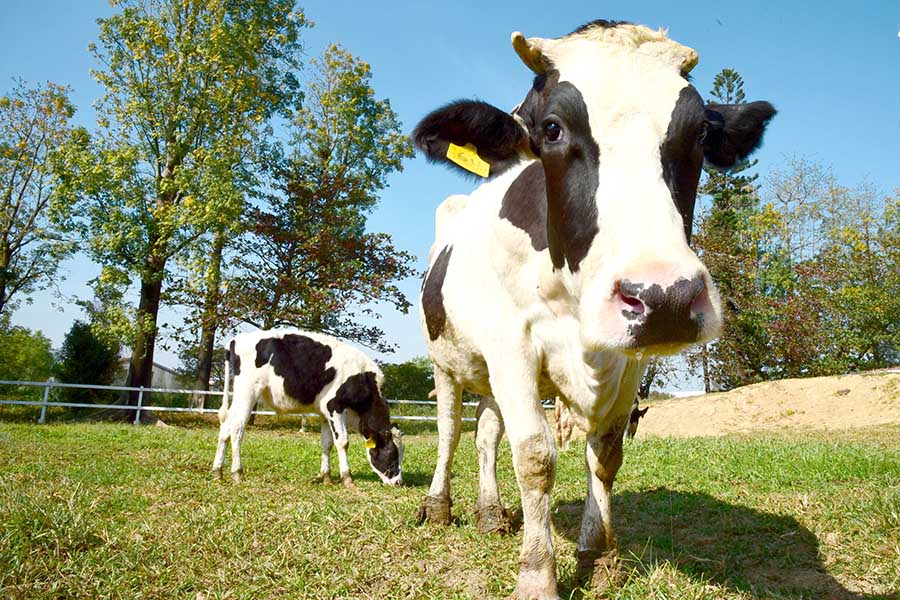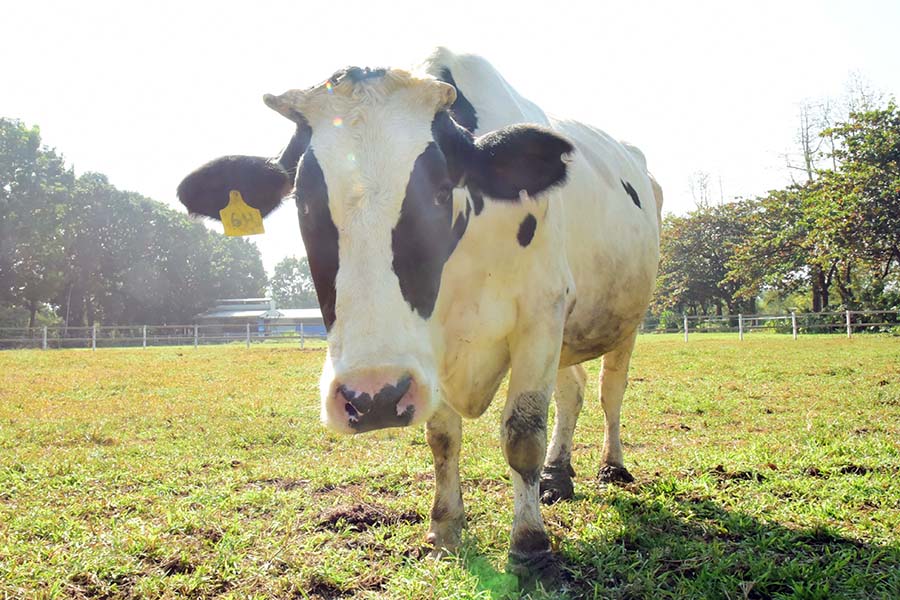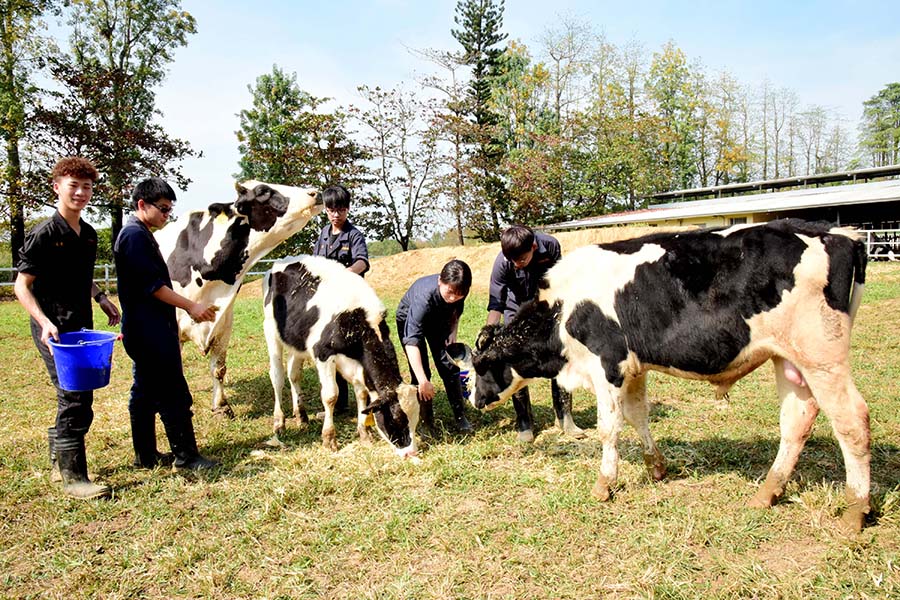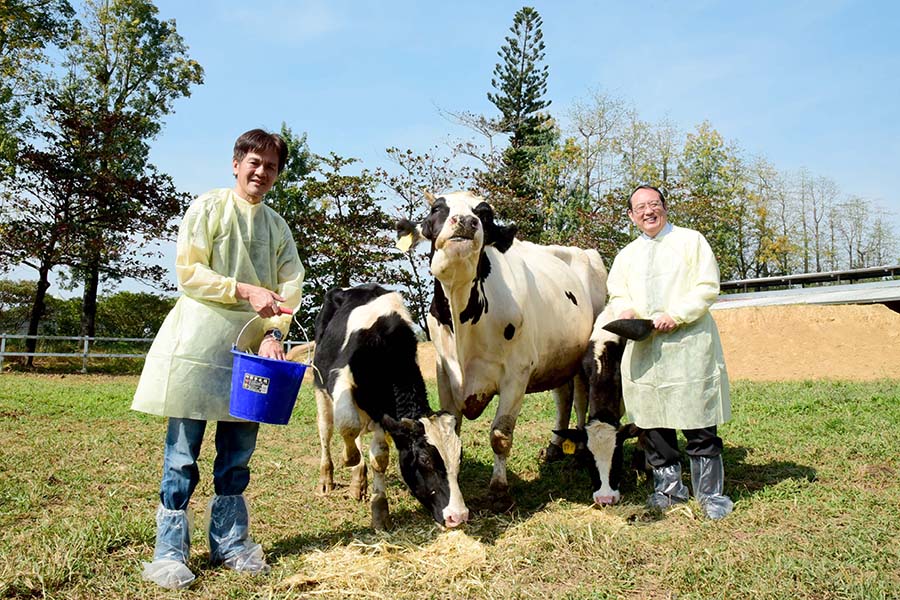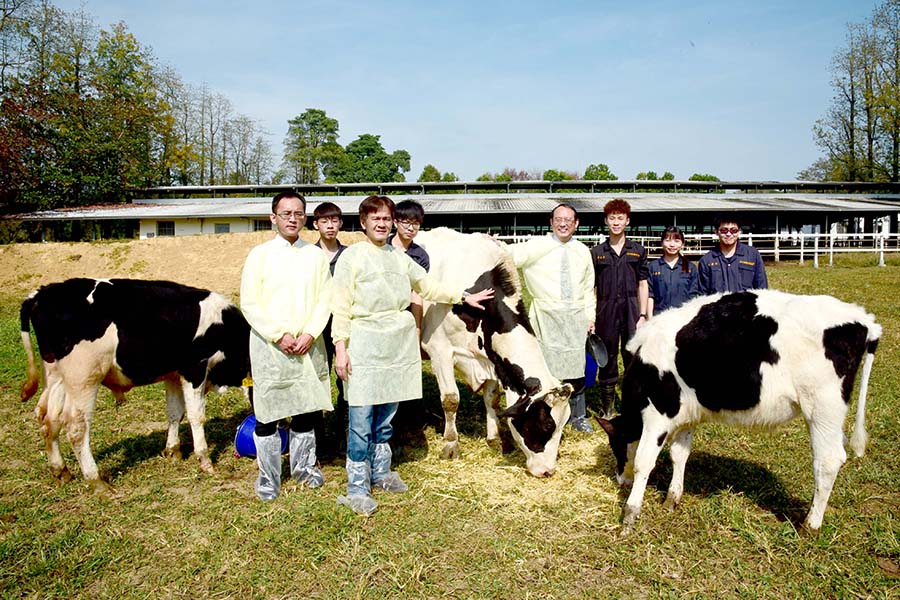On December 17th, Professor Perng-Chih Shen of the Department of Animal Science and PhD candidate, Yu-ju Li, of the Graduate Institute of Bioresources jointly published their work on emerging reproductive Spindle Transfer (ST) technology. Through their research, the duo was able to successfully transfer the nuclei of oocytes (ovary cells) from heat-intolerant Holstein Friesian cattle into the oocytes of Taiwan Yellow cattle, a breed that fares well in warmer temperatures. The embryos came to maturity and four healthy “ST” calves were delivered. The research is the first successful case of this type world-wide.
NPUST’s president, Chang-Hsien Tai, said that “these are breakthrough developments in Spindle Transfer technology and we hope that in the future this technology will make major contributions for Taiwan.”
Professor Shen explained that “the unique aspect about this case is that, looking at the superficial features of the cows, they appear to be a Holstein Friesian—however, their cells are from the Taiwan Yellow. Currently we are using cytoplasm to improve the nuclear heat resistance characteristics of the animals. We are using spindle transfer technology to incubate a new variety —to breed dairy cows for Taiwan which are well suited for warm climates. We hope that this will be able to spread world-wide”.
The Taiwan Yellow has been in Taiwan for around 400 years and is well suited for life in hot climates. However, functionally speaking, they have always served to work the fields. The Holstein Friesian, on the other hand, is the number one choice for dairy production world-wide.
Thus, following general trends in R&D related to the breeding of crops and animals resistant to negative effects of certain natural conditions, the NPUST research team developed a ST technique to overcome dairy production challenges in Taiwan.
Professor Shen has been conducting research on warm climate, high-production dairy cattle for many years. His previous research provided a theoretical basis for a scenario where the cytoplasm of heat-tolerant livestock could be used to improve the ability of heat-intolerant livestock to endure warm climates. Now, hopes are that through this newly emerging technology, Taiwan’s agriculture sector will enter a new phase of development.

